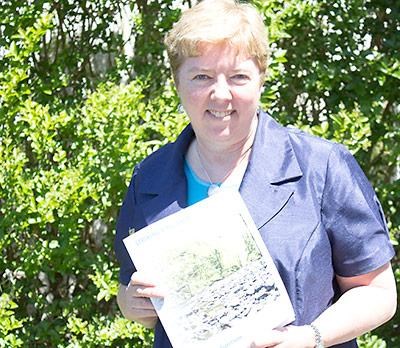BC’s Ombudsperson made a stop in Powell River during her most recent tour of the northern Vancouver Island area.
“We serve the entire province,” said Ombudsperson Kim Carter. “If people have not been successful in resolving their problems with the public agency and still feel they have not been treated fairly and reasonably, they can come to us. While the majority of complaints are by telephone, mail or online, some people are more comfortable meeting face-to-face and I feel it’s important that this opportunity is available to people throughout the province.”
Carter’s latest tour started in Port Hardy. She and her staff spent a day in Port McNeill, Campbell River, Powell River and Courtenay-Comox before returning to Victoria.
“It really gives us a chance to hear from people in the community and offer a chance for people to come in and talk with us,” she added.
Nearly 7,500 enquiries and complaints were responded to and 1,900 early resolutions or investigations were completed last year by the Office of the BC Ombudsperson.
The Ombudsperson investigates complaints about all provincial ministries and boards, Crown corporations, colleges and universities, schools and boards of education, health authorities, local governments and self-governing professions.
Ombudsperson’s role is to uphold the democratic principles of openness, transparency and accountability, to ensure that every person in BC is treated fairly in the provision of public services and to promote and foster fairness in public administration, explained Carter.
This is done by receiving and investigating individual complaints and conducting systemic investigations to consider issues from a broad perspective, she added.
In March 2014 Carter released her report called Striking a Balance which made 25 recommendations to the ministry of forests, lands and natural resource operations aimed at closing gaps in the environmental protection program for riparian areas. The ministry accepted 24 of the recommendations.
Carter noted in her report that Riparian Area Regulation, provincial legislation enacted in 2005 which provides protection to areas surrounding streams, lakes and inland waters, is part of a “broader shift by the provincial government toward the ‘professional reliance model’ of environmental regulation.”
The one recommendation the ministry did not accept was having government staff review all development applications. The ministry currently reviews only about 20 per cent of applications, said Carter, adding that it relies on certified environmental professionals. She noted the ministry could not establish that acceptable levels of compliance were met with the current review rate.
The Ombudsperson said her office receives regular updates on the status of the government’s progress on implementing accepted recommendations.



